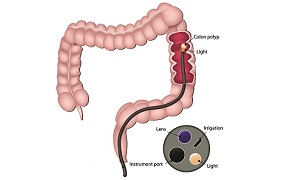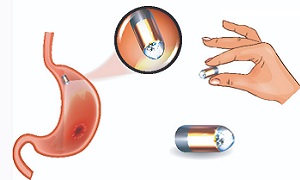Best Doctors in India for Inflammatory Bowel Disease Treatment
Best Hospitals in India for Inflammatory Bowel Disease Treatment
- City: Mumbai, India
Hospital Highlights:
- Fortis Hiranandani hospital was established in 2007.
- The hospital is an advanced tertiary care, multi-specialty hospital equipped with 149 beds.
- The hospital is equipped with a super ICU to provide emergency medical care to critically ill patients.
- The hospital is NABH accredited.
- The critical care facility in the hospital is augmented with the state-of-the-art facilities that facilitate speedier diagnosis and efficient monitoring.
- The hospital provides specialty medical services in cardiology, orthopedic science, pediatric science, neurology, diabetic care, urology, nephrology, ENT, obstetrics, gynecology, cosmetic surgery, bariatric surgery, neuro and spine care.
- City: Gurugram, India
Hospital Highlights:
- W Pratiksha Hospital, Gurugram, is one of the best hospitals in the NCR region. It is also a top hospital in India for IVF. Since its inception, the hospital has performed over 5500 successful IVFs. The hospital also specializes in gynecology.
- With over 20 years of experience in providing quality healthcare, the hospital is known as one of the most trusted and valued health providers in India.
- Equipped with world-class medical facilities and advanced technology, the hospital’s doctors and clinicians also have a track record of delivering excellent results. The hospital is also known for focusing on preventive well-being as much as on curative treatment.
- The hospital has earned the trust of its patients, by providing the best available treatments at affordable costs.
- City: Gurugram, India
Hospital Highlights:
- Paras hospital was established in 2006 and is the 250 bedded flagship hospital of Paras Healthcare.
- The is supported by a team of doctors of international and national repute.
- The hospital is NABH accredited and also the first hospital in the region to have a NABL accredited laboratory.
- The hospital provides specialty medical services in around 55 departments including Neurosciences, Joint Replacement, Mother & Child Care, Minimal Invasive Surgery, Gynecology and Obstetrics, Ophthalmology, Dermatology, Endocrinology, Rheumatology, Cosmetic and Plastic surgery.
- The hospital is equipped with state-of-the-art technologies.
- City: Kolkata, India
Hospital Highlights:
- Fortis Hospital, Anandapur, Kolkata is a world-class super-speciality equipped with the latest technologies in the medical world.
- The hospital is NABH accredited.
- This state-of-the-art facility specializes in cardiology and cardiac surgery, urology, nephrology, neurosciences, orthopaedics, digestive care, emergency care and critical care.
- The hospital, governed by integrated Building Management System (IBMS), has a pneumatic chute system, for quick vertical and horizontal transportation between floors, facilitating speedy transfer of patient specimens, documents, reports, and medicines to the concerned departments.
- The hospital also has a nephrology department with over 28 advanced dialysis units.
- City: Mumbai, India
Hospital Highlights:
- SL Raheja hospital is a 140-bed multi-specialty tertiary care hospital that is being managed by Fortis Healthcare Ltd.
- The hospital is a benchmark in healthcare and medical facilities in the neighborhood of Mahim & the western suburbs.
- L.Raheja Hospital, Mahim has one of the most effective ICU and Casualty care services.
- The hospital provides specialty medical services in Cardiology, Oncology, Neurology, Orthopedics, Mother & Child Care, and in Diabetes.
- City: Mumbai, India
Hospital Highlights:
- Wockhardt Hospitals were established in the year 1973, originally called First Hospitals and Heart Institute.
- Wockhardt Hospitals are super specialty health care networks in India, nurtured by Wockhardt Ltd, India’s 5th largest Pharmaceutical and Healthcare company.
- Wockhardt Hospitals is associated with Partners Harvard Medical International, an international arm of Harvard Medical School, USA.
- Wockhardt Heart Hospital performed India’s first endoscopic heart surgery.
- The hospital has a state-of-the-art infrastructure equipped with the latest technologies and modern equipment.
- It has special Centers of Excellence dedicated to the major specialties to provide hassle-free and high-quality clinical care.
- City: Gurugram, India
Hospital Highlights:
- The CK Birla Hospital in Gurugram is a NABH-accredited multi-specialty hospital.
- The hospital strives to increase the quality of healthcare by focusing on UK NHS nurse and midwife training requirements. Policies and practices derived from the National Institute for Health and Treatment Excellence (NICE) recommendations in the United Kingdom ensuring that a strong focus on safety, high-quality clinical care, and sanitation is maintained.
- The hospital’s cutting-edge technology and facilities allow for real-time communication and seamless collaboration among caregivers, ensuring accuracy and the best possible results. Those with foreign experience and accreditations make up part of the hospital’s team of clinicians.
- City: Ahmedabad
Hospital Highlights:
- As a member of the Apollo Hospitals Group, Apollo Hospitals International Limited, Ahmedabad is one of the most popular and sought-after medical facilities in Gujarat.
- Through its 6 Centres of Excellence and various affiliated branches, which cover all specialties and subspecialties, the hospital provides the most advanced clinical services.
- Since its inception in 2003, the hospital has been providing each patient with the most up-to-date medical equipment and state-of-the-art technology.
- With more than 150 successful organ transplants, including liver and renal transplants, the facility has been able to build a strong and extensive organ transplant program.
- In addition to performing 600 surgeries and caring for over 1800 patients on an IP basis, the hospital sees more than 18,000 patients on average in the outpatient department.
- With one of the biggest cardiology teams in the area, the hospital provides state-of-the-art regional care treatment in Cardiac Sciences.
- Additionally, the hospital offers a broad range of Neuro Interventional techniques to help stroke patients recover more quickly.
- City: Noida, India
Hospital Highlights:
- Jaypee Hospital is the flagship hospital of the Jaypee Group.
- This hospital has commissioned 525 beds in the first phase and has been planned and designed as a 1200 bedded multi-specialty facility.
- It holds the accreditation of the NABH and NABL.
- The hospital has state-of-the-art infrastructure equipped with the latest technologies and modern equipment like 64 Slice PET CT, Dual Head 6 Slice SPECT CT, Gamma Camera, and Da Vinci Robotic Surgery for comprehensive robotic surgical solutions.
- It has special Centers dedicated to the major specialties to provide hassle-free and high-quality clinical care.
- City: Mumbai, India
Hospital Highlights:
- Reliance Hospital is one of the best super-specialty care hospitals in Navi Mumbai.
- The main purpose of this hospital is to become a trustworthy place for the best health and hope for society. The hospital is well connected to the suburbs of Mumbai and Navi Mumbai.
- The hospital has various specialty departments, viz., Accident & Emergency, Anesthesiology, Dental Services, Dermatology, Diabetology, Dietetics Nutrition, Endocrinology, ENT, Gastroenterology, General Surgery, Gynaecology And Obstetrics, Hepato Pancreato Biliary Surgery, Infectious Disease, Internal Medicine, Interventional Radiology, Laboratory Medicine, Minimal Access Laparoscopic Surgery, Nephrology, Neurosciences, Opthalmology, Orthopaedics, Paediatrics, Pain Management Palliative Care, Physical Medicine Rehabilitation, Plastic And Reconstructive Surgery, Psychiatry, Pulmonary Medicine, Radiology, Rheumatology, Transplant, Urology Andrology, Vascular Surgery
Inflammatory Bowel Disease (IBD)
Types
Symptoms
The signs and symptoms of inflammatory bowel disease may vary, depending on the severity of inflammation as well as where it occurs.
You are likely to have periods of active illness which is followed by periods of remission. Some of the signs and symptoms include:
- Diarrhea
- Fatigue
- Blood in your stool
- Reduced appetite
- Unintended weight loss
- Abdominal pain and cramping
The signs and symptoms are common to both ulcerative colitis and Crohn’s disease.
You should see your doctor if you are experiencing a persistent change in your bowel habits, or if you experience any of the signs and symptoms of inflammatory bowel disease. Although inflammatory bowel disease usually isn’t fatal, it’s a serious disease that, in some cases, may cause life-threatening complications.
Causes & risk factors
The exact cause of this condition is still unknown. Previously, diet and stress were suspected, but now most doctors know that these factors aggravate but are not the exact causes of inflammatory bowel disease.
An immune system malfunction is a possible cause. When your immune system tries to fight off an invading virus or bacteria, an autoimmune response makes the immune system attack cells in the digestive tract as well. Heredity may play a role as well since inflammatory bowel disease is more common among people where there are family members having the disease.
Some of the risk factors include the following:
Age- Most people who develop this condition are diagnosed before the age of 30. Though some people don’t develop it until their 50s or 60s.
Cigarette smoking- Cigarette smoking is also a significant risk factor for developing Crohn’s disease.
Race or ethnicity- White or Caucasian people generally are at the highest risk of the disease, though it can occur in any race.
Family history- If you have a family member or close relative with this disease, then your risk increases.
Diagnosis
To diagnose inflammatory bowel disease, your doctor will first need to ask you questions about you and your family’s medical history, as well as your bowel movements.
A physical exam might be followed by one or more of the following diagnostic tests:
Computerized tomography (CT) scan
Magnetic resonance imaging (MRI)
Stool sample and blood test
Barium Enema
A barium enema is an X-ray exam of the colon as well as the small intestine. Though this type of test was used in the past, now it has been mostly replaced.
Flexible sigmoidoscopy and colonoscopy
Capsule endoscopy
This test inspects the small intestine, which is quite harder to examine as compared to the large intestine. For the test, you will need to swallow a small capsule that will contain a camera.
As it moves through the small intestine, it will take pictures. Once you’ve passed the camera in your stool, the healthcare team can see the pictures on a computer. This test is used only when other tests have failed to find the cause of the symptoms of Crohn’s disease.
Plain film or X-ray
Treatment
Generally, the first step in treating inflammatory bowel disease is anti-inflammatory drugs. Although these drugs can help you decrease inflammation of your digestive tract, they come with many side effects. Immune suppressant drugs might also prevent the immune system from attacking the bowel and causing inflammation.
You also need certain changes when you are having inflammatory bowel disease. Drinking plenty of fluids is important, though you need to avoid dairy products. Avoid too much stress as well. It is also important to exercise and quit smoking.
Your doctor can also recommend vitamin and mineral supplements to help with nutritional deficiencies.
Talk to your doctor before you add any new supplements to your diet.
Surgery
Surgery can also sometimes be necessary with inflammatory bowel disease. Some of the surgeries include:
- strictureplasty to widen a narrowed bowel
- closure or removal of fistulas
- removal of affected portions of the intestines, for people having Crohn’s disease
- removal of the entire colon and rectum, for those suffering from severe cases of ulcerative colitis
Routine colonoscopy is also used for monitoring colon cancer since those having inflammatory bowel disease are at a higher risk for having it.
Complications
Both ulcerative colitis and Crohn’s disease have complications that are common, including colon cancer, inflammation of the skin, eye, and joint.
It might also lead to a condition called primary sclerosing cholangitis, where there is scarring within the bile ducts, eventually making them narrow and causing liver damage.
Inflammatory bowel disease also increases the risk of blood clots in veins and arteries.
Prevention
You can reduce your risk of developing inflammatory bowel disease by eating healthy and exercising regularly. It’s also best if you can quit smoking.















